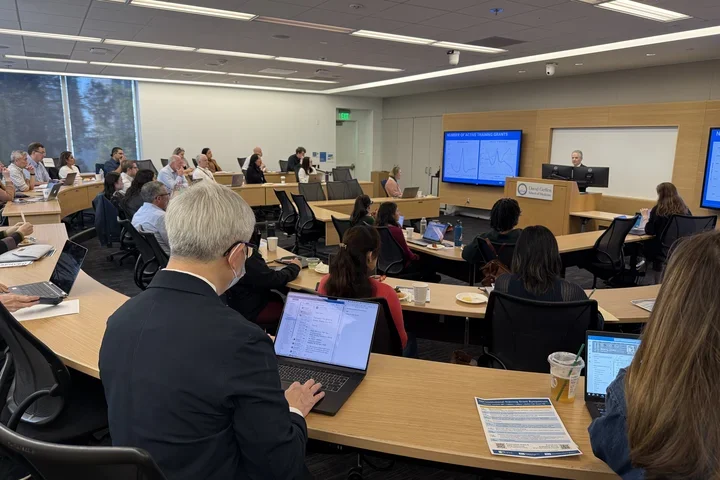Discoveries could improve therapies for life-threatening acute respiratory distress syndrome

A new Cedars-Sinai study could help develop new therapies for COVID-19 patients with respiratory failure.
The study focused on acute respiratory distress syndrome (ARDS), a type of sudden-onset respiratory failure that can occur when the lung's lining is damaged by illness or injury. ARDS causes fluid to accumulate in the lungs and also causes the lungs' air sacs to collapse, impeding breathing and lowering the oxygen level in the blood.
Although most COVID-19 patients have mild respiratory illness, about 20% become seriously ill and require hospitalization due to pneumonia that can progress to ARDS and systemic inflammation, according to recent research. ARDS is associated with poorer outcomes, including death and lasting lung damage.
The research team analyzed the immune systems of 17 COVID-19 patients—five with moderate coronavirus disease, six with ARDS and six who were recovering from ARDS—and compared these patients against three people without COVID-19. They uncovered a range of distinctive defects in the transcription processes of peripheral blood mononuclear cells in the ARDS patients, as compared with the other subjects in the study.
UCLA CTSI KL2 awardees were included in the research team, including co-first author, Changfu Yao, PhD, and contributing author, Tanyalak Parimon, MD, from Cedars-Sinai.
This study was funded by the Parker B. Francis Foundation Fellowship; Plum Foundation; Erwin Rautenberg Foundation Fellowship; the National Institutes of Health (NIH) under award numbers T32HL134637, P01HL108793), R01HL135163), R01AI127406, R01AI103542, R21AI151987, R01AI134987, R01AI137111 and R01HL137076; and the National Center for Advancing Translational Sciences of the NIH through the UCLA CTSI under award number KL2TR001882.
See the full Cedars-Sinai press release.
Image source: Cedars-Sinai Medical Center
Image caption: Drs. Changfu Yao and Tanyalak Parimon.



